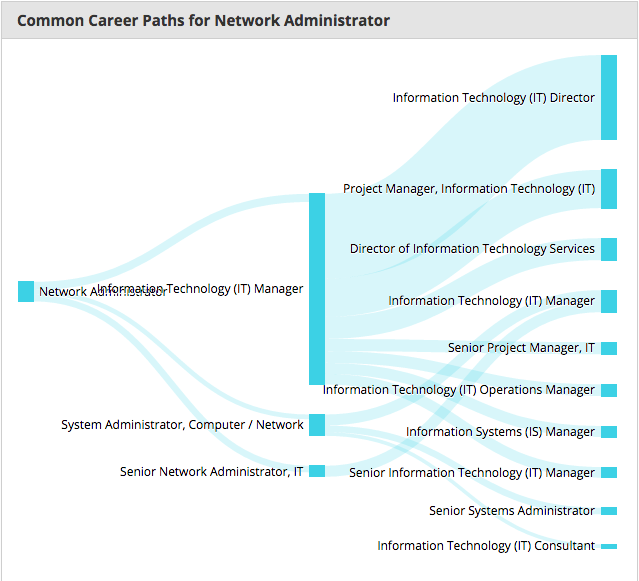What is a Network Administrator?
Network Administrator is a type of computer network technician; they establish, operate, maintain, and co-ordinate the use of local and wide area networks (LANs and WANs), mainframe networks, hardware, software and related computer equipment. Network administrator is also responsible for setting up and maintaining Internet and Intranet Web sites and Web-server hardware and software, as well as monitoring and optimizing network connectivity and performance.
Network administrators are responsible for the network’s overall stability and security, and some of their duties may include installing network hardware, training users and evaluating network performance. Many employers look for applicants with a computer-related diploma or degree, from programs such as information technology, network administration or information system management. Also, having a industry specified networking certification would a great addition to your application as well.
What kind of education do I need?
A variety of degree and diploma programs are available in the field of network administration, often at the post-secondary level. These programs can be found under a variety of majors, including network system administration, network and Microsoft certification, computer service technician, computer software support, information science and information systems management at post secondary institutions such as universities, colleges, as well as property accredited vocational institutions such as Academy of Learning College. These program coursework often consists of study in computer science, computer programming training, network systems, systems security, advanced mathematics and statistics.
At Academy of Learning College, the Network Administration program provides students with the necessary skill and knowledge to plan, install, and provide routine control over and manage exceptional situations in relation to quality communications network services in an information system. It provides in-depth knowledge on evaluating communications hardware, software and transmission service alternatives against changing business requirements; maintaining links with network suppliers; monitoring network performance; providing support for systems; localizing and rectifying faults in networks and handling non-routine user/customer problems; and providing expertise and practical assistance in delivering service that complies with statutory and other standards, as well as strategic and tactical plans.
How much does a Network Administrator make?
According to PayScale Canada, the average pay for a Network Administrator is C$54,663 per year. Most people with this job move on to other positions after 20 years in this field. The total national average salary for network administrators range from $38,929 to $76,129, including a maximum yearly bonus of $6,078, maximum profit sharing of $4,880, plus a yearly maximum commission of $8,500.
The common next-step career paths for new work administrators varies from Information technology Manager, to System network administrator, and senior network administrator. Professionals often advance their career paths further and become IT director, IT project manager, IT services director, Senior IT project manager, IT operations manager, Senior system administrator, or IT consultant in the future.
What’s the job Outlook like for Network Administrators?
According to Service Canada, job prospects in this occupation are good. This conclusion is related to average job prospects in the various specializations in this occupation. Actually, job prospects for network administrators and for Web technicians are good and job prospects for computer operators are limited.
After increasing significantly until 2000, the number of computer network technicians has declined between 2000 and 2005 before rising once again thereafter. The decline in the early 2000s was primarily due to lower business investment in the computer sector. The return to growth from 2005 can be explained by an increase in such investment. As this trend is likely to continue, so we should be seeing a significant increase in their numbers over the next few years.
As the largest career college in Canada with 50 campuses across the country, Academy of Learning College attributes the growth in our success to identifying the gap between the formal education available and the realities of the working world. We fulfill the needs of learners by developing customized programs for each student, while meeting the requirements for convenient and effective training at an affordable cost. Browse our program list by province and find the best program that suits your needs!





